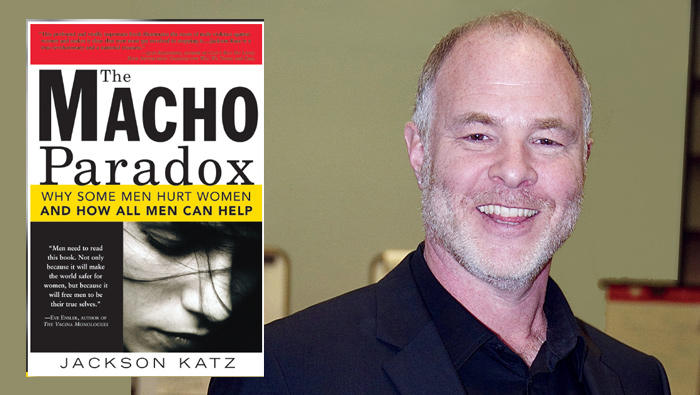Think about the women you know in your life. Narrow it down to four. Imagine one of them – someone near and dear to you – suffering humiliation, mental anguish, physical pain, possibly having their life threatened, and feeling too fearful to talk about it.
One in four women reports experiencing abuse at the hands of a partner at some point in their lives, according to Shelter Without Walls, a program of Jewish Family & Children’s Service of Phoenix that works with survivors of domestic violence.
That statistic is reflected in the Jewish community as well, despite stereotypes that discourage Jewish victims from seeking help. The Jewish domestic violence movement, which is now more than two decades old, has been pushing against this stereotype.
“The thought was that it didn’t happen in the Jewish community because Jewish men weren’t like that. Women are meant to feel ashamed – it’s not supposed to happen, but it happened. The healthier response is, ‘He’s the one who violated Shalom Bayit, not me,’” says Jackson Katz, Ph.D., an educator and author known for his pioneering activism on issues of gender violence, referring to the Jewish value of maintaining a peaceful, happy home. “Yet the victim-blaming, which is so pervasive in the larger culture, not just in the Jewish community, is such a powerful force to keep the status quo in place. When you blame yourself, you don’t hold a perpetrator accountable, and nothing changes.”
Katz, who headlines the Phoenix JFCS Brighter Tomorrow luncheon on Feb. 26, holds that the key to ending the epidemic of gender abuse is a cultural shift in mindset, from seeing it as a women’s issue to making it a men’s issue, especially for men in leadership, in all spheres of society. (See: https://azjewishlife.com/brighter-tomorrow/).
“We have this enormous and ongoing global problem of men’s violence against women and children, as well as men’s violence against other men,” says Katz.
The way society and individuals look at the problem will need to shift in order to reduce the prevalence of domestic violence. He believes two paradigm shifts are necessary.
“The first part of the paradigm shift is that we need to see these as men’s issues, not as women’s issues that some good men help out with,” emphasizes Katz. “That concept is both deeply problematic and outmoded, because it shifts the burden of responsibility off the group with more power (men) onto the one with less (women). Among other things, this gives men an excuse not to pay attention.”
Although it’s important to note that abuse also occurs in same-sex relationships and against men, the overwhelming majority of domestic abuse incidents involve men abusing women. According to Katz, 86% of domestic violence assaults that result in injury are perpetrated by men, which is one of the reasons for approaching it as a men’s issue.
“The second part of the paradigm shift is that we have to see these issues as leadership issues for men,” he says. “Women – inside and outside the Jewish community – have been and will continue to be the primary leaders on the matter of counteracting sexism and the many related problems of domestic and sexual violence. But men have a critical role to play as well. If you’re a man in a position of leadership – however you define leadership – in your family, faith community, business, politics, education, sports culture, media you need to be knowledgeable about domestic violence and sexual assault and the ways that those issues are connected and intersected with all kinds of other issues. And you need to know what you can do in your sphere of influence to prevent it from happening, not because you’re a nice guy who is helping out the women, but because you are a leader…. It’s no longer acceptable, if it ever was, to say ‘It’s not really my problem. It’s not really my issue.’ That’s just an unacceptable evasion.”
Katz is the founder and president of MVP Strategies, which provides gender violence prevention and leadership training to institutions in the public and private sectors. He is one of the architects of the “bystander” approach to gender violence prevention, which was introduced through a program he co-founded in 1993, the Mentors in Violence Prevention program at Northeastern University. It’s now one of the longest-running sexual and relationship abuse prevention programs utilized by high schools, colleges, sports and the military. He is the author of The Macho Paradox: Why Some Men Hurt Women and How All Men Can Help and Man Enough? Donald Trump, Hillary Clinton and the Politics of Presidential
Masculinity, which will be released in February through Interlink Books.
Katz stresses that we need to stop seeing domestic violence primarily as a criminal justice issue. It’s not enough to punish individual perpetrators. We need to change underlying social norms. And to bring about change, education needs to begin early.
“Parents of sons need to talk to them about their responsibility not only to treat women and girls with respect, but also about what to do in situations when guys around them are not treating girls and women with respect,” says Katz. “What’s your responsibility in those situations? You, yourself, might never harm a girl or woman, but what do you do when friends and others in your peer culture act in ways that are sexist or abusive?”
Katz acknowledges that this may be difficult for fathers, who may feel hypocritical when looking back at their behaviors, or sense that they don’t have the language to talk about sexism authoritatively.
“The sum total of these anxieties, these doubts, these insecurities, these failures of imagination about what to do, the sum of that is a lot of silence and inaction. And in my work, I hear all the time about the results of this inaction,” says Katz, emphasizing the need for men to step out of their comfort zone and assume the responsibility of leadership, as women’s allies and partners, to change the collective frame of mind.
To learn more about Katz’s approach to gender abuse, view his TED talk from November 2012, “Violence against Women – it’s a Men’s Issue” (ted.com/talks/jackson_katz_violence_against_women_it_s_a_men_s_issue).
Katz’s keynote presentation at the Brighter Tomorrow luncheon is just one part of the event focusing on domestic violence. Proceeds will support Shelter Without Walls, JFCS’s program for victims of domestic abuse.
Shelter Without Walls provides advocacy, court accompaniment, education, counseling and special assistance to domestic violence victims who do not live in shelters, helping more than 1,780 survivors, including children, each year. Like most of JFCS’s programs, it serves the broader community and only a small percentage of the clients are Jewish.
According to the program’s director Mimi Kaplan, Shelter Without Walls was created to fill a gap. Most state or federally funded domestic violence services are for those who have left an abusive relationship and are living in a shelter. Shelter Without Walls provides services for victims who don’t qualify for those services because they are still living in the same home as their abuser, have escaped and are living with a relative or friend, or who have left a shelter and are transitioning to living on their own. Government funds often come with restrictions on the duration of services. Shelter Without Walls has no time limit; clients are offered assistance for as long as necessary.
“Our overall mission is safe self-sufficiency,” Kaplan says.
This initially involves educating the victims, so they learn not to blame themselves and understand what their options are. “We help them understand that it’s probably not going to change or get better.” When they get to the point where they are ready to leave the abusive relationship, Shelter Without Walls helps them plan for a safe exit. “Leaving the relationship is the most dangerous time, so we do lots of safety planning.”
The program also provides a range of case management services, support groups, advocacy and court accompaniment. “I call my advocates ‘resource queens,’” says Kaplan. “Whatever is needed – financial help, educational, finding a process server or a place to store your belongings, or finding a better job – they’re just awesome at finding the resources.”
Kaplan says that there is now a national trend towards community-based services for victims of domestic violence, but that JFCS is ahead of the game, having adopted this approach since it opened in 1998.






